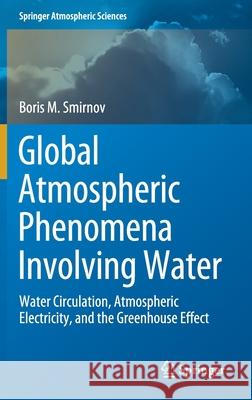Global Atmospheric Phenomena Involving Water: Water Circulation, Atmospheric Electricity, and the Greenhouse Effect » książka
topmenu
Global Atmospheric Phenomena Involving Water: Water Circulation, Atmospheric Electricity, and the Greenhouse Effect
ISBN-13: 9783030580384 / Angielski / Twarda / 2020 / 219 str.
Global Atmospheric Phenomena Involving Water: Water Circulation, Atmospheric Electricity, and the Greenhouse Effect
ISBN-13: 9783030580384 / Angielski / Twarda / 2020 / 219 str.
cena 403,47
(netto: 384,26 VAT: 5%)
Najniższa cena z 30 dni: 385,52
(netto: 384,26 VAT: 5%)
Najniższa cena z 30 dni: 385,52
Termin realizacji zamówienia:
ok. 16-18 dni roboczych.
ok. 16-18 dni roboczych.
Darmowa dostawa!
Kategorie BISAC:
Wydawca:
Springer
Seria wydawnicza:
Język:
Angielski
ISBN-13:
9783030580384
Rok wydania:
2020
Wydanie:
2020
Numer serii:
000435783
Ilość stron:
219
Waga:
0.50 kg
Wymiary:
23.39 x 15.6 x 1.42
Oprawa:
Twarda
Wolumenów:
01
Dodatkowe informacje:
Wydanie ilustrowane











